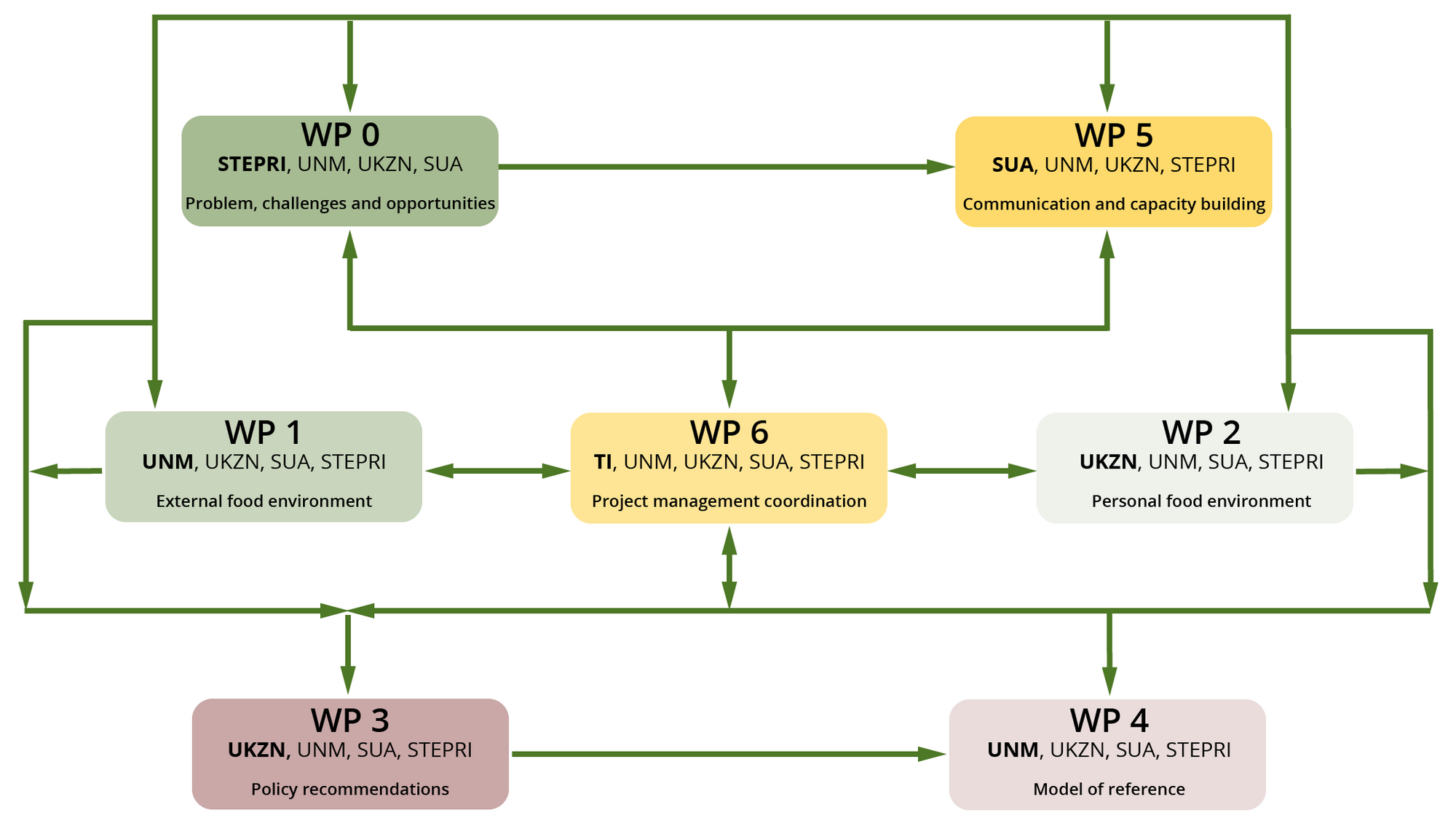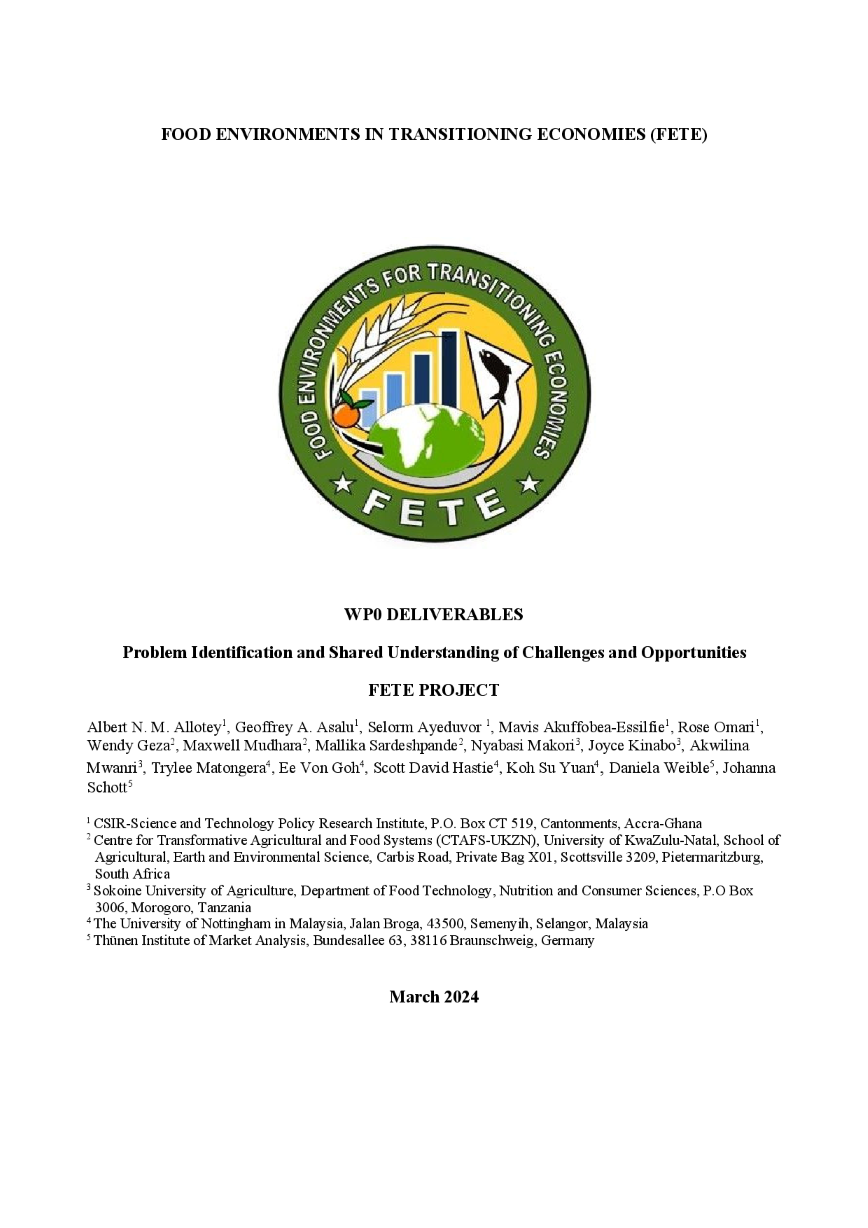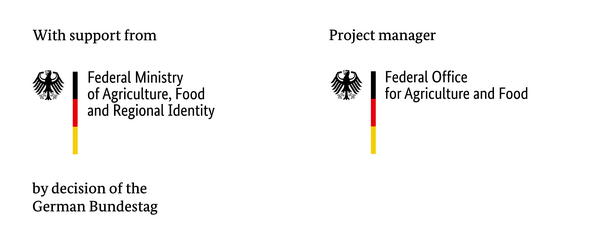Work Packages

The FETE project is divided into 7 work packages (WPs).
Work package leader: CSIR-STEPRI
Following a successful webinar with over 75 stakeholders from six countries to identify common challenges and opportunities in the area of food environments, WP0 aims to identify local stakeholders in the four project countries and define the sample population of the urban marginalised groups (target group). The expected outcome of WP0 is an increased knowledge of the food environment problems faced by urban marginalised groups and ways to address them.
Deliverables:
Work package leader: UNM
The Project Team will conduct an extensive study of external food environments and their influence on nutrition and health outcomes. This will be done by measuring the physical food environment within target communities, e.g., where people shop. Through surveys, Geographical Information System (GIS), and data from business databases, the Team will characterise external food environments in partner countries, focusing on food sources, available products, nutritional information, and pricing. Employing time series analysis, the Team will investigate the national food supply network and the impact of historical and current food policies. Causal loop maps will illustrate the complex relationships between food supply and policies. Predictive modelling will forecast future trends. Results of WP1 inform WP3 and WP4 activities.
Work package leader: UKZN
The Project Team will conduct a detailed study of personal food environments' impact on nutrition and health outcomes using a Participatory Geographical Information System (PGIS). This involves mapping physical food environments at a personal level to establish links with food behaviour determinants and nutritional status with the aim to create a nutrition vulnerability map and maps on food purchase, consumption patterns and health status. These maps visualize food access disparities and intervention opportunities. Cross-comparisons with WP1's time-series mapping will elucidate changes over time and complex interactions between personal and external drivers of nutritional trends. Results of WP2 inform WP3 and WP4 activities.
Work package leader: UKZN
Building upon the insights from external (WP1) and personal (WP2) food environments, consumption patterns, and health status, the Project Team will employ a complex system modelling approach to develop evidence-based policy recommendations. These recommendations will be assessed for their effectiveness in target communities, integrating data from WP0-2. Stakeholder consultations will be held to validate findings and inform policy development. Using data from WP3 and foresight models, the team will characterize the system's current state and create intervention scenario narratives. Best practices and standards will be identified through complex system models and stakeholder input. The result will be evidence-based policy recommendations co-created with stakeholders, informed by inter-country analysis and comparison.
Work package leader: UNM
Leveraging insights from WP 0-3, the Project Team will perform inter-country analysis to uncover variations and dynamics among partner countries, spanning various development stages. A reference model will be created using the Systems Approach Framework to guide wider applications in the Global South. Additionally, a publicly accessible data and maps dashboard will be developed for knowledge sharing, enhancing communication and the adoption of policy recommendations by the target audience.
Work package leader: SUA
This focuses on stakeholder engagement, capacity building, and communication. It aligns stakeholder needs with organizational goals, facilitating effective project development. WP5 involves disseminating project outputs to diverse stakeholders and provides stakeholder management and capacity-building activities. Throughout the project, stakeholders actively participate, ensuring a comprehensive understanding of their needs and securing support for project activities. It also develops and implements a Doctoral Training Programme to train eight doctoral students in transdisciplinary research. The programme includes Participatory Geographical Information System (PGIS), nutrition vulnerability assessment and management skills. Four Postdoctoral researchers will be coached to become independent leaders.
Work package leader: TI
WP6 ensures the project's objectives, milestones, and deliverables align with requirements of the funding agency. It manages internal communication and interactions with the funding body, handling finances, administration, and project monitoring for high-quality results. WP6 establishes a decision-making structure, fostering prompt, coordinated communication and clear responsibilities. Research leaders ensure common research work plans and quality assurance across partner countries.
Deliverables:

